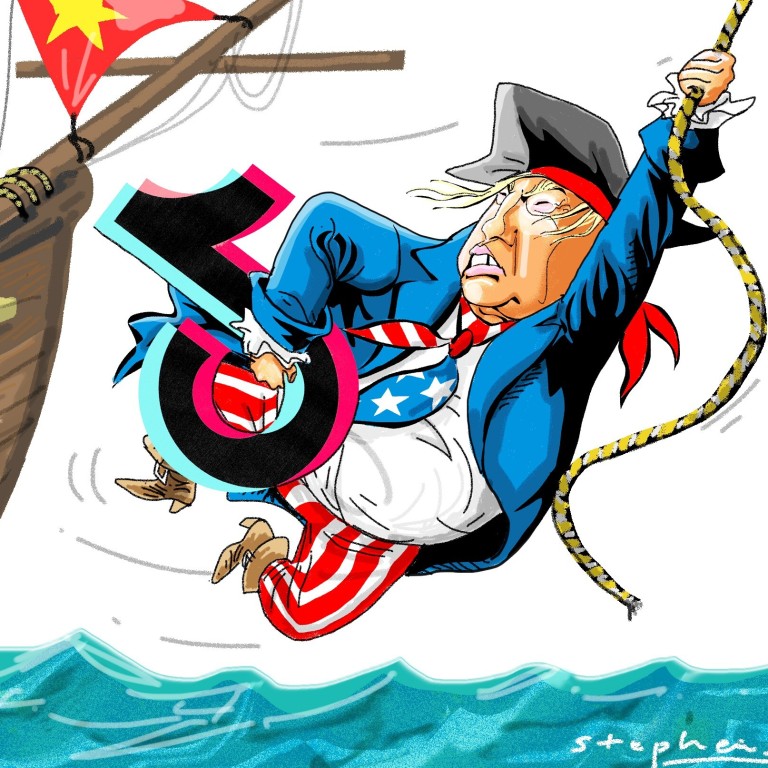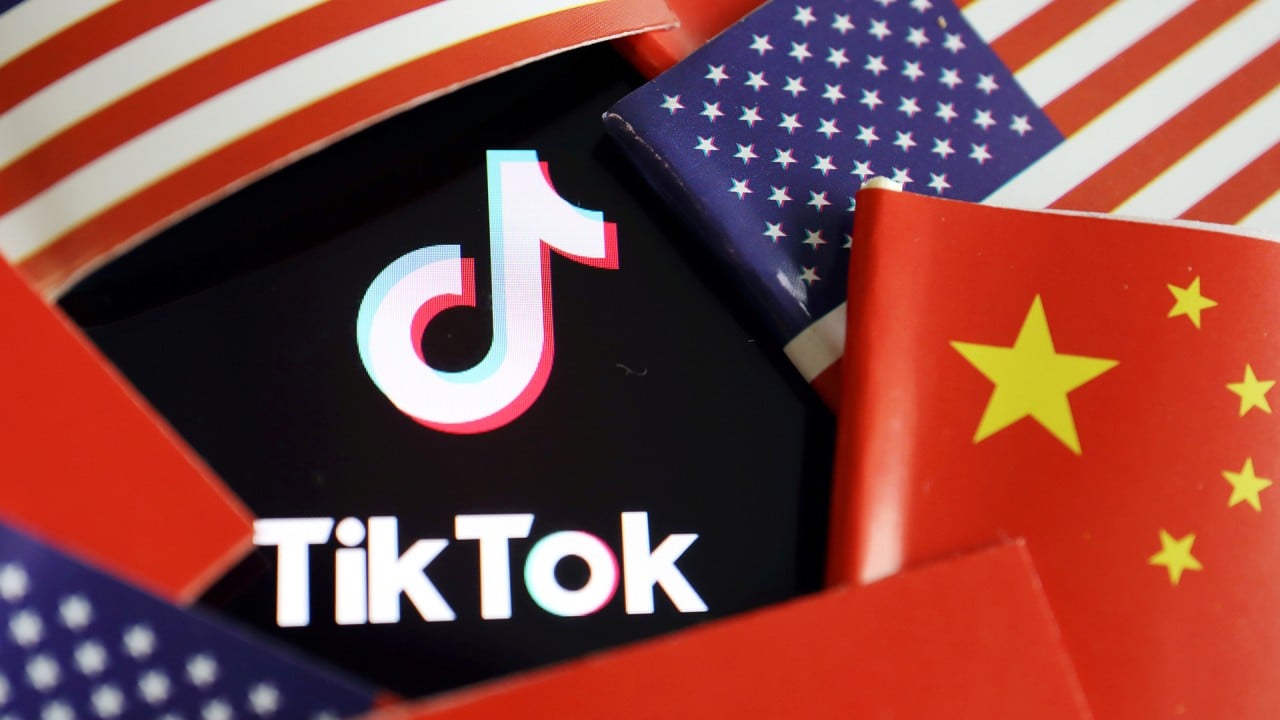
Attacking TikTok won’t better protect Americans’ data privacy, and Donald Trump knows it
- Trump’s ban on Chinese apps is a cynical attempt to bolster his election campaign
- Data security is a huge issue that needs to be tackled, but the US government is skipping the hard work of regulating technology platforms and truly holding them accountable
America used to be the shining white knight of innovation and technology. It was the purveyor of the American dream, freedom of speech, and rule of law. It used to be the fairy godmother. Now it’s the Wicked Witch of the West trying to promote her own political agenda.
Such an aggressive ban on a foreign tech platform on American soil is not a fight for citizens’ data privacy, but rather an abuse of power geared towards influencing the US presidential election. This is in stark contrast to what we have come to expect, even demand, from the leader of the free world.
Threatening Chinese companies like Bytedance and Tencent is the wrong way to protect American citizens’ security, data and privacy. The apparent assumption here is that American companies are able to securely collect and store citizens’ data, and it has been proved wrong time and time again.
We cannot rely on US technology companies to protect or store American citizens’ data, much less other companies across international borders. To protect Americans’ data, the government should do the hard work. Govern and regulate all technology platforms, whether they are based in China, Silicon Valley, or anywhere in the world.
The government should introduce an internet data protection act, setting clear and transparent standards for handling and protecting users’ data. Similar to the Sarbanes-Oxley Act, the internet data protection act should require senior executives to take responsibility for data practices and internal content moderation, and carry stiff criminal penalties.
All tech platforms should be required by law to play a responsible role in protecting data privacy by submitting to regular audits of their data collection process. An independent internet data oversight board should be set up to provide oversight of how tech companies are handling user data.

06:35
US demands for TikTok may escalate decoupling and hurt businesses, says China expert
Another great reference point would be the Gramm-Leach-Bliley Act, which is also known as the Financial Services Modernisation Act of 1999. It is a United States federal law that requires financial institutions to explain how they share and safeguard their customers’ private information.
To comply with the law, financial institutions must communicate to their customers how they share the customers’ sensitive data, inform customers of their right to opt out if they prefer that their personal data not be shared with third parties, and apply specific protections to customers’ private data in accordance with a clearly written privacy protection policy and terms of service.
Tech platforms are as important, if not more, to society as banks, so the US government should do the same.
The US government should also think about requiring tech platforms to offer open-source software and artificial intelligence algorithms .
All technology platforms with a specific number of users and above should also be required by law to have a chief data officer whose role would be to ensure data compliance, adequate communication, and opt-out mechanisms for end users.
As a technologist, I hate seeing the technology industry used as a prop in political theatre. Instead, discussions about security should really centre around how to protect data and safeguard user privacy.
Regulating internet data is certainly no small task and that is why we need engineers, scientists, technologists, cryptographers, economists, regulators, and law enforcement to be part of this conversation – which certainly should not be a one-man show by a desperate politician.
America’s influence on the world’s internet and innovation has always been so great that the world listens. Young people believe in an open global internet. We need to protect our young people and defend the future of the internet. We came this far in building the borderless internet.
We need technology giants to take responsibility, be accountable and commit to full transparency regardless of where in the world they are from.
Edith Yeung is a general partner at Race Capital and author and creator of the China internet Report

